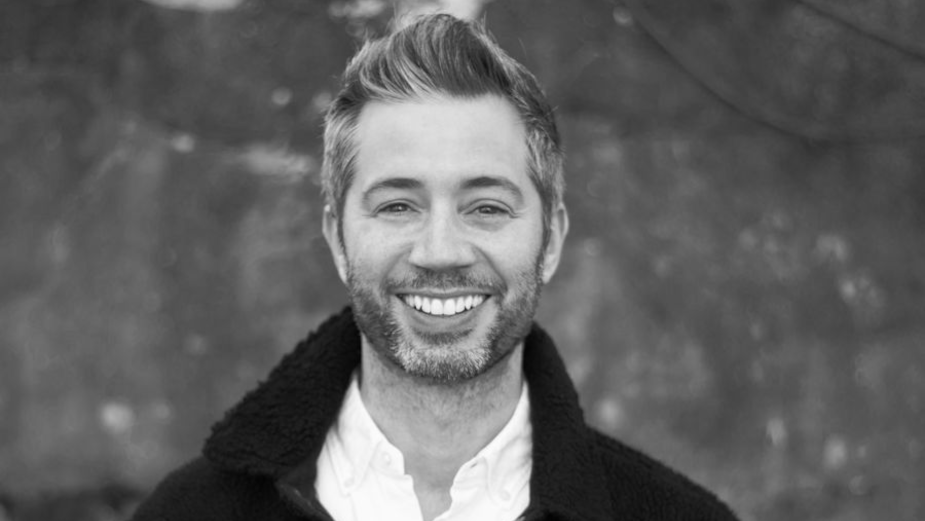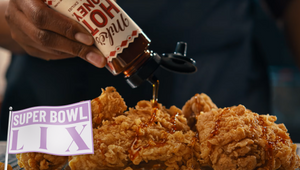
Finely Sliced: Feeling Completely Entrenched in the Story with Aaron Tompkins

Aaron Tompkins fell in love with editing while watching hip-hop videos as a kid in the 1990s. After having the distinction of being one of two students in his high school’s 'film class,' Aaron went on to study film and graphic design at the University of Arizona. During the summers, he honed his skills at Silvercup Studios in NYC, on HBO megahits including The Sopranos and Sex in the City.
As an editor, Aaron enjoys working across all genres, from comedy to more fast-paced visual pieces. He has worked on Emmy and Lion-winning global ad campaigns for renowned brands like Google, Budweiser, Nike, and many more throughout his career. In addition to commercial work, Aaron has also worked on long-form Netflix documentaries.
Captivating. Rhythmic. Immersive. Aaron’s edits draw the viewer into the film’s emotional core, holding the viewer’s attention from the first frame to the last. In Lauren Sick’s atmospheric short film for Ford out of Wieden+Kennedy, the film transports the viewer to the driver’s seat as their new Raptor R navigates the night time desert landscape with pulse-racing footage and edgy cinematic imagery. Visceral, raw, and evocative, with a hint of insidiousness thrumming just below the surface, the edit lures the viewer closer to danger before lashing out once more.
LBB> The first cut is the deepest: how do you like to start an editing project?
Aaron> The first thing I do is make a cup of tea. Then I watch down all the footage and pull my first round of selects. After that, I’ll watch the first round of selects again, and pull super selects from that.
LBB> Non-editors often think of editing just in technical terms but it’s integral to the emotion and mood of a film. How did you develop that side of your craft?
Aaron> I think that part of the job develops with every job you do. I think it’s an ongoing process of learning, and hopefully improving each time you sit in the chair. I also judge every movie, show, commercial, etc I see based mostly on emotion, tone, and overall mood of the film. I think it’s probably the most important aspect of the job as an editor.
LBB> How important is an understanding of story and the mechanics of story?
Aaron> It’s extremely important. As an editor, it’s your job to convey a mood or feeling to the audience. I think without feeling completely entrenched in the story, and without completely understanding the story, you’re never going to be able to elicit the feelings that the director and the editor wanted you to feel.
LBB> Rhythm and a sense of musicality seem to be intrinsic to good editing (even when it’s a film without actual music) – how do you think about the rhythm side of editing, how do you feel out the beats of a scene or a spot? And do you like to cut to music?
Aaron> I think music and sound can really change the feeling of a piece dramatically. Also almost equally important is the absence of sound to create a mood or feeling of tension etc. I love cutting to music, because I find it fun to punctuate the scene or transition with little sounds within the track. Using the changing beats or instruments in the songs, and lining them up to the transitions in the story or spot is one of my favourite parts of the job.
LBB> Tell us about a recent editing project that involved some interesting creative challenges.
Aaron> I think a challenging part of the job these days is everyone being divided all over the world, and rarely being all together in the same room to see what’s working the best.
LBB> In the US we know that editors are much more heavily involved across the post production process than in Europe - what’s your favourite part of that side of the job?
Aaron> I love the communal part of editing. I love sitting in the room and figuring out a solve together for a more tricky part of the edit. I think it only benefits the film to have varying opinions on what may or may not work the best. I think the only way you know it is going to work or not is to try it. And if you do that together, then everyone is on the same page.
LBB> What’s harder to cut around – too much material or not enough? (And why?)
Aaron> Definitely too little material is harder to cut around I think. If you’re missing a certain camera angle or bridge to another scene, and you just don’t have the shot covered. Then I think that it can sometimes be very difficult to fix without feeling like something is off.
LBB> Which commercial projects are you proudest of and why?
Aaron> I think the projects that I’m most proud of are the ones where my intention, and the intention of the director is what you see evident in the final product.
LBB> There are so many different platforms for film content now, and even in advertising something can last anything from a few seconds to a couple of hours. As an editor, are you seeing a change in the kind of projects you’re getting from brands and agencies?
Aaron> I think the biggest change that I see is in the social component of the job. I find that there is much more emphasis on the seven second social piece, or the 15 second spot then there used to be.
LBB> How does editing in the commercial world differ from the film world and TV world?
Aaron> At the end of the day, in the commercial world you’re still trying to sell a product.
LBB> Have you noticed any trends or changes in commercial editing over recent years?
Aaron> One thing I’ve noticed is that the timelines are much much shorter than they used to be. And unfortunately, that time working with the director and trying different things is usually what gets cut short.















